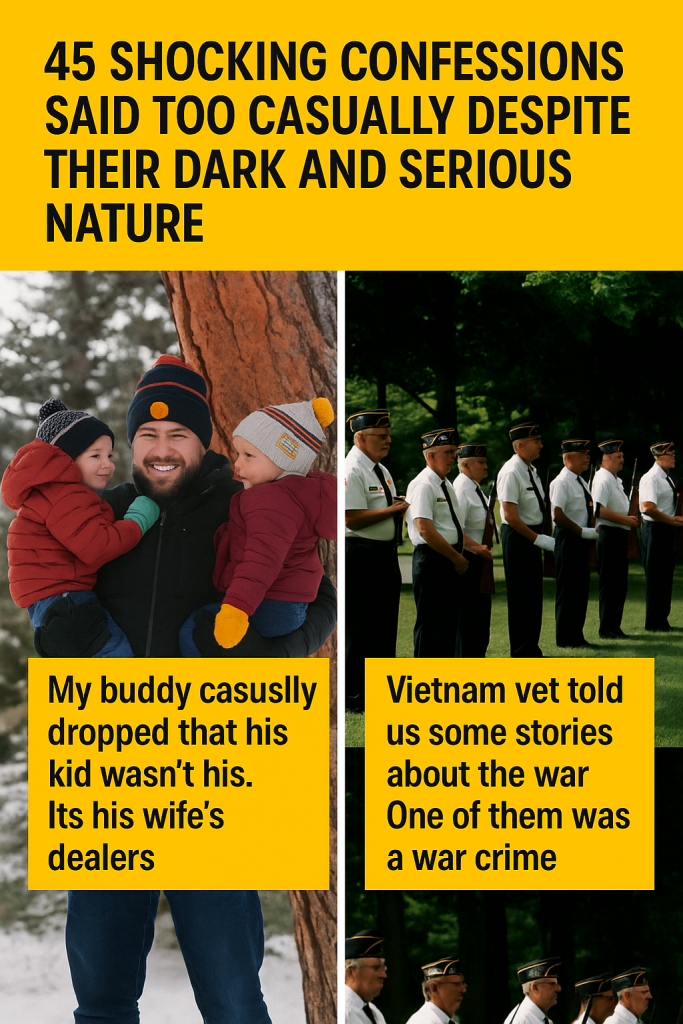In an era dominated by instant communication and viral content, one recent social media phenomenon has captured widespread attention: a compilation titled “45 Shocking Confessions Said Too Casually Despite Their Dark and Serious Nature.” This post, which has rapidly gained traction in early 2024, features an assortment of deeply unsettling admissions nonchalantly revealed in everyday conversations. The shocking nature of these confessions coupled with their casual delivery has ignited a passionate public dialogue about the complexities of human relationships and the weight of unfiltered honesty.
The viral post includes an array of confessions reported by everyday people—stories that would typically be considered private, heavy, or even taboo are described in a tone that suggests a surprising level of indifference or normalization. Among the most talked-about entries is a man’s offhand revelation that his child is not biologically his, but instead his wife’s from another relationship. The casualness of this disclosure—shared seemingly without remorse or tension—has shocked many viewers and prompted questions about trust, identity, and family dynamics.
This particular confession resonated widely, becoming a talking point across social platforms. Comments ranged from empathy toward the man’s apparent emotional detachment, to outrage over what some interpreted as a betrayal or denial of paternal responsibility. The situation spotlights a growing trend seen in the digital age: the ease with which intimate and sometimes disturbing truths are aired publicly, often stripped of the usual emotional gravity such confessions might carry in face-to-face interactions.
Experts in psychology and sociology suggest that this trend is partially fueled by the anonymity and immediacy of social media platforms, empowering people to share candid thoughts that might have previously remained hidden. The post taps into a cultural moment where the boundaries between private and public spheres are increasingly blurred, and where the rawness of unfiltered speech is both a catalyst for connection and a source of discomfort.
Beyond the viral allure, the list of 45 confessions highlights a range of issues—from infidelity and addiction to unresolved trauma and ethical dilemmas. Many confessions reveal profound struggles that individuals live with daily but express with startling nonchalance, potentially as a coping mechanism or a plea for understanding.
Notably, the viral compilation also raises questions about the impact of such confessions on those who hear them. When a deeply personal and distressing truth is delivered casually, the listener is often left grappling with conflicting emotions, unsure how to respond or process the information. This creates a complex social dynamic that challenges conventional expectations about communication and emotional expression.
As this post continues to make rounds on social media channels, it has become a mirror reflecting society’s evolving conversations about vulnerability, honesty, and the human experience. The viral phenomenon invites readers to consider how much is too much when it comes to sharing personal truths, and whether the normalization of “dark confessions” signals deeper shifts in interpersonal norms.
Ultimately, the widespread sharing and discussion of these 45 shocking confessions underscore the power of social media to surface hidden narratives and force a collective reckoning with uncomfortable realities—albeit delivered in a surprisingly casual fashion.



